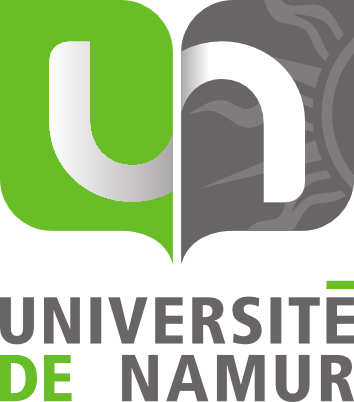International Standards for the techno-economic study of lithic productions in the Neolithic period
SCIENTIFIC EVENTS FOR YOUNG RESEARCHERS OF THE FRANCO-BELGE UNIVERSITY
Date : 23/03/2019 09:30 - 23/03/2019 14:00
Lieu : Séminaire L32 (Unamur, Faculté de Philosophie et lettres, Rue de Bruxelles 61, 5000 Namur)
Orateur(s) : Silviane SCHARL, Solène DENIS, Jean-Philippe COLLIN, Pierre ALLARD, Françoise BOSTYN, Vincent DELVIGNE, Laurence BURNEZ-LANOTTE, Géraldine FIERS, Marjorie de GROOTH, Ingrid KOCH, Daniel SCHYLE, Hans VANDENDRIESSCHE
Organisateur(s) : Solène DENIS, Silviane SCHARL and Jean-Philippe COLLIN (project holders), with Pierre ALLARD, Laurence BURNEZ-LANOTTE, Ingrid KOCH and Daniel SCHYLE
From the 6th to the 3rd millennium BC, the Neolithic corresponds to a vast stream of innovations that have affected human societies in temperate Europe. The study of the material culture of these Neolithic populations reveals the existence of very extensive exchange networks. The latter are particularly visible through the sphere of lithic productions. However, the recognition of the circulation of siliceous products is closely related to advances in the characterization of raw materials on the one hand, and technological studies on the other. The study of the networks for the diffusion of raw materials therefore contributes to highlighting the mobility and connectivity of agro-pastoral communities during the Neolithic. The triptych (identification of raw materials/technological analysis/confrontation with theoretical data and modelling) constitutes a rapidly expanding research dynamic for a detailed understanding of the socio-economic organization of Neolithic populations. However, while diffusion networks transcend our national borders, there is currently no cross-border academic training. This project of scientific events for young researchers therefore aims at developing international standards for the analysis of lithic assemblages and at promoting exchange and collaboration beyond the national borders of the area concerned. These standards will be based on the development of commonly agreed criteria creating a modus operandi for the description and analysis of raw materials and technological characteristics. With this in mind, we will seek to pool the highly complementary specific scientific expertise of each of the three institutions involved in this project. In addition, we hope, that the young researchers will also benefit from the intergenerational transmission of this complementary knowledge, since experienced and international renowned experts will take part in the projected workshops.
NAMUR, 21-23rd MARCH 2019
The first event will take place at the LIATEC laboratory of the University of Namur and will focus on analyzing raw materials used by Neolithic societies. On the one hand, new methods for characterizing siliceous raw materials will be presented based on various scales of observation (macroscopy, mesoscopy and microscopy). These multiscalar analyses essentially aim to assign a flint to its geological formation stratum as well as its gitological origin. By contextualizing the lithostratigraphy in the geological space concerned by the project, the geological and geographical origins of the flint raw material selected by the Neolithic societies under consideration is to be specified. This heuristic approach is very promising for the Benelux and North Rhine-Westphalia as it can be used as a tool to define potential raw material sources. Identifying the most relevant and easy-to-apply analytical criteria for archaeologists will lead us to reconsider the potential of lithothecas for researchers. It will then be necessary to define a common vocabulary and standards starting from a joint systematic discussion of the existing ones to adapt our lithothecas by harmonizing the information currently available. This event will be an opportunity to show the potential and necessity of the resulting common basis as a starting point for analysing the circulation of raw materials during the Neolithic. Exercises with raw material samples from the area under study will put the participants in a position to use and adjust the common standards to their own data.
11:00 Welcome of participants
13:00 Introduction speech: the need for common standards, Silviane Scharl, Solène Denis and Jean-Philippe Collin
13:15 The raw material reference collections in the near future: The GDR SILEX project in France, Pierre Allard, Françoise Bostyn, Jean-Philippe Collin and Vincent Delvigne14:00 New methods for characterizing siliceous raw materials, Vincent Delvigne and Jean-Philippe Collin
15:00 Break
15:15 New methods for characterizing siliceous raw materials: which tools for the constitution of a common reference collections on the field? Standardization of descriptive criteria. Workshop
16:30 New methods for characterizing siliceous raw materials: definition of common standards for raw materials analysis. Workshop
09:00 The main raw materials that spread in the Neolithic period from northern France to the North Rhine. Objective: to point out the convergence of facies and identify the limits to the restitution of diffusion networks, Pierre Allard, Françoise Bostyn, Laurence Burnez-Lanotte, Jean-Philippe Collin, Solène Denis, Géraldine Fiers, Marjorie de Grooth, Ingrid Koch, Daniel Schyle, Hans Vandendriessche
11:00 Break
11:30 The main raw materials that spread in the Neolithic period from northern France to the North Rhine. Sample observations in macro-, meso- and microscopy, practical exercise and use of common standards. Workshop
13:00 Lunch
14:30 Synthesis of the current vernacular designations of siliceous raw materials: what do they correspond to? how to get out of the confusion by proposing new naming tools? Brainstorming
15:15 The potential of a lithostratigraphic approach as a common reference framework for Benelux-NRW, Jean-Philippe Collin and Marjorie de Grooth
16:00 The potential of a lithostratigraphic approach as a common reference framework: sample observations in macro-, meso- and microscopy, practical exercise and use of common standards. Workshop
09:30 The research to be developed for the Benelux and North Rhine-Westphalia: state of the art, perspectives, expectations of each and preparation of future projects. Inventory of existing lithothecas, what is their content and the nature of the information. What projects could standardize, enrich and disseminate the information of these lithothecas? What are the possible sources of funding? Brainstorming
12:00 Lunch
13:00 Debriefing of the event: impressions and perspectives
Contact :
Solène DENIS
-
solene.denis@unamur.be
Plus d'info :
https://www.unamur.be/liatec/scientific-manifestations/neolithic
Télecharger :
vCal
